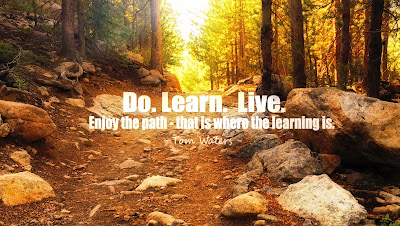The Talker, the Shaker, and the Faker
Three principals go to their schools one day, and each one faces a series of problems, challenges, and frustrations with staff members.
The first principal, the Talker, decides to summon the courage and talk candidly with two teachers that she is concerned about. It's not a pleasant thing for the Talker, but she believes transparency and truthfulness build trust and respect.
The Faker believes being kind and positive will create the conditions for her campus to thrive. She also has two teachers that she's concerned about, but is fearful of holding an uncomfortable conversation - instead, she fakes a smile and brings in heavy doses of nice.
The Shaker also has two teachers that seem to be causing problems on her campus. She shakes things up by deciding to move these two teachers into positions that they will dislike, and she hopes they get the message.
The Talker
Without a doubt, the Talker tackles discomfort with courage and honesty. If this approach is couched in empathy, the Talker will find long-term results.
This principal is creating a foundation of trust, mutual respect, and is willing to do the work with her staff for the betterment of the campus. This is how strong cultures are built!
A few tips to be a successful talker:
When we experience uncomfortable moments, we have a great opportunity to experience tremendous growth. @CarlTaylor_ehhs
Change is seldom comfortable. The whole point of a crucial conversation is to bring about change. @jackson_carrie
The Shaker
It's a belief about change leadership that dissuades the Shaker from holding conversations on critical issues. It's also likely a lack of empathy and understanding how culture is shaped.
Shaking things up can happen without being The Shaker, but The Shaker doesn't understand that. Each week there's a running of the bulls, but this isn't Spain and bulls don't shape school culture!
Some words of advice from two educational leaders:
I think that blame is a huge trap that we have to watch out for. It's so important to help people own it, fix it, and move on through our care-fronting conversations! @BarbaraGuener
It's okay to be vulnerable. Be transparent. Explain your perspective and allow for others to do so, too. Disagreement is not the enemy. Complacency is. @tchrwithatitle
The Faker
We must trend the positive in our schools. We must energize and empower. However, being too nice when the situation calls for a serious, yet empathetic tone will muddy purpose.
Your tone must match the purpose. The Faker conveys the wrong message and engenders distrust by not using a candid approach.
The Faker will benefit from this advice:
Discomfort is a part of any positive change. 'Pain' can bring gain and growth. Remain hopeful. @ChrisQuinn64
When you are too nice you may be sending a message of the situation is not "a big deal" or you lose that sense of urgency. I don't have these convos for the fun of it. I want to work together to improve. @McLane_Ryan
You might have first-hand experienced with one of these three principals before. You may have taken on their different mindsets yourself. Most of us have, from time to time.
Nothing's easy about talking through challenges with people you respect and care for, but it's every bit worth it for the success of your staff, your students, and your school!
Thanks for reading, please consider sharing with a friend or continue reading these related posts:
- Candor in Crucial Conversations
- Lead with Questions
- Lead with Questions by Steven Weber




Comments
Post a Comment
What are your thoughts?